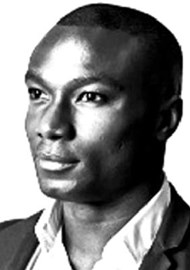There is a wide variety of hearing instruments available to the hearing impaired. Hearing care professionals are often confronted with making decisions on which to recommend based on audiometric and non-audiometric parameters (e.g. vision, manual dexterity and vanity). The factors which have been shown to influence professionals include certain psychological decision-making models such as the tendency to stick to the status quo and to ignore statistical evidence, as well as stereotypes of race, age and gender. This study investigated which parameters act as the primary influencers. The researchers identified a set of patient variables (and their respective levels) from 25 professionals from Germany, USA, France and Italy who were blinded to the scope of the study. These would be the basis of their recommendations. An experimental design was developed and 21 representative patient cases were generated. These were sent to 3500 randomly selected professionals from Germany, Italy, France and the USA. Seven-hundred-and-thirty-three patients responded with the majority from the USA. The results of this study indicate that the recommended level of hearing instrument (HI) technology depends on: the patient’s activity level as perceived by the professional; the HI usage level (for experienced users) and; the patient’s age and speech discrimination score. This was an interesting study with applicability in a non clinical setting. Biases by professionals often have a self-fulfilling effect. This is also seen when a waiter believing a table will be a poor tipper is subsequently inattentive. The same is true with professionals who make judgements on the non-audiometric parameters of the patient. Conclusions to be drawn from this study are limited due to statistical significance not being universal, the 20% response rate increasing selection bias and the affiliations of the researchers (Oticon).
Factors affecting hearing aid recommendations
Reviewed by Cheka Spencer
Case factors affecting hearing aid recommendations by hearing care professionals.
CONTRIBUTOR
Cheka R Spencer
MSc, AFHEA, FRCS (ORL-HNS), Royal Free London NHS Foundation Trust, London, UK; Chair, ENT UK Global Health Committee. @ENTUKGlobal
View Full Profile



